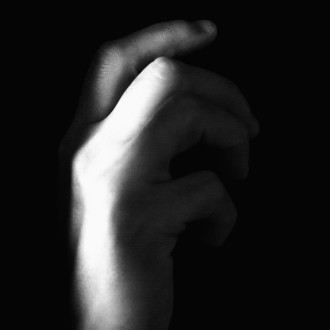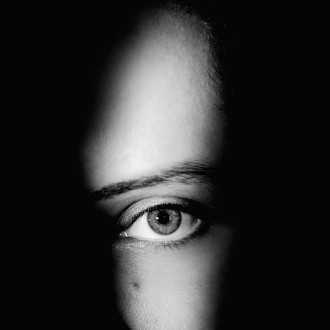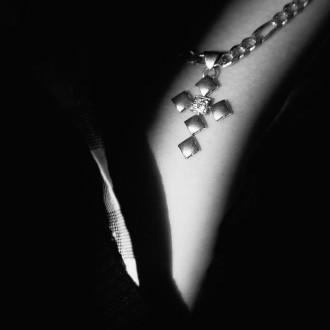A round-table discussion on being gay and Arab with the women of Helem Banet
In certain cultures, homosexuality is considered a choice, a fabrication, a sin or even an
abomination. Faced with these representations and the notion that homosexuality is purely a “western” phenomenon, members of Helem Banet—the women’s branch of Helem, a Montreal-based organization set up in 2004 to support Arabic-speaking LGBTQ+ individuals— have gathered to talk about their lives (or, in some cases, double lives). The participants hail from Morocco, Egypt, Lebanon and Saudi Arabia; together, they reflect on their fears, paths they’ve taken, religious beliefs and their families’ feelings about queerness. For these women, Canada represents a particular kind of liberation—one that isn’t without its issues. Certain tenets may be ingrained, a tacit code of conduct in deference to conservative
relatives or members of a faith-based community: don’t hug, hold hands or show any kind of affection in public unless you want to live in fear. This remains the day-to-day reality for some; living a double life lowers the risk of being found out. “In Morocco, homosexuals are looked down upon,” says Nina. “It impacts the entire family. I’m very careful when I go out. Even in the Gay Village in Montreal, we don’t hold hands. News travels fast; people talk a lot.”
Family
Community is central to Middle Eastern and North African cultures, and family extends well beyond close blood relatives. It is an entire ecosystem of neighbours, uncles and aunts— distant and not so distant. As much as family can be an important support network, it can also create inner conflict for someone seeking to affirm herself, someone wanting to live openly.
For Karole, her ties to Lebanese society don’t allow her be true to herself. “That’s why I didn’t
want to have anything to do with Arabs when I got here. I wanted to be free. I didn’t want to live two lives because it wears you down,” she says. In countries such as Morocco and Egypt, cultural norms identify homosexuality as an affliction requiring treatment. For curious or questioning individuals, growing up in places that consider homosexuality freakish or criminal has a powerful influence—it can lead to both self-hatred and feelings of resentment when it comes to one’s culture of origin. The burden of bringing shame on an entire clan can discourage LGBTQ+ people from coming out and “imposing” their sexual orientation on their relatives. Sandra believes that one of the biggest concerns for lesbians is familial reputation. “In our culture, there’s a lot of judgment, gossiping and keeping up of appearances. To come out is to expose and dishonour your family,” she says. By a certain age, young people are expected to get married and have children. It’s not “normal,” especially for a young woman, to be single or not to be dating members of the opposite sex. Marriages are often arranged and it isn’t unheard of for lesbian and bisexual women to agree to be married for the sake of fulfilling traditional expectations. “Here in Montreal, I make the most of my double life and my freedom,” Sandra says. “My family pressured me to marry, so I became engaged to an Egyptian man. I thought I had to have the same life as everyone else around me. I wanted to be accepted, to do the right thing. Well, it was complete torture. Some straight people are disgusted by us, but I was disgusted by what I was doing. It didn’t feel right to me.”
Coming out
Of the 10 women interviewed, four are no longer afraid to live their lives openly. They grew up wanting to be like everyone else and to emulate their friends and cousins; they were unable to celebrate their differences or to put their feelings and lack of romantic interest in men into words. But for most, coming to Canada to pursue their studies was a salvation. They could explore their attraction to women, their bodies and especially their sexuality. Carol describes the fascination she felt, at 17, towards another girl: “I dreamed of making love to her. I created a fake online profile to meet people and ask a bunch of questions.”
When one’s sexual orientation is associated with words such as “sin” and “hell,” it may seem as if homosexuality and religion are irreconcilable.
For Karole, who has lived in Montreal for the past nine years, the act of coming out happened quietly, far removed from family—and fear. She gained distance and perspective through building a life for herself that included a job and a new social circle. “I’m more comfortable now,” she says. “When I visit my country, I can be myself. I don’t pretend anymore. I’ve lost friends because of my homosexuality but I no longer care.” In the case of Kadera, her worries about being judged and the potential fall-out for her relatives trump her desire to be open about her bisexuality. “You have to be aware of what people think and how it will impact your loved ones. That’s the hardest thing about coming out. Because it affects your family and your name,” she says. Danielle believes a lot of lesbians would be out and proud if it weren’t for their immediate relatives. But coming out doesn’t always mean leaving fear or secrets behind. Being a good daughter, granddaughter, sister, niece and cousin is a huge responsibility. Being “decent” in all respects is important and, for many, homosexuality remains a distasteful topic. Last year, 23 year-old Nina came out to her father: “For a Moroccan man, he’s extremely open-minded and reacted very well. But the discussion with my mother was bitter. If I’d gone home, I would have been sent to a doctor.
Religion
For many, religion can be yet another obstacle to self-acceptance. Raquel, 23, is the exception in the group. In her Jewish community, she says, being gay is common and not at all taboo: “The rabbi of one of Montreal’s largest synagogues is a lesbian.” The pervasiveness of religious rhetoric against the queer community can cause much suffering—leading, in some cases, to self-denial or suicide. Sarah explains she was a homophobe before recognizing that she was, in fact, gay. “In order to wake up every morning and accept myself, I had to believe that being a lesbian and being a Catholic aren’t mutually exclusive.” She adds that some women will question themselves for years before understanding that “God will always be there with them.” Many of the women of Helem Banet disassociate their homosexuality and their faith, experiencing them separately. Karole considers the two to be distinct entities: “I can’t say that religion prevents me from being gay because that’s something you can’t change. You don’t choose your sexual orientation.” To be in harmony with faith involves moving past the duality of the theological precepts and one’s sense of self. Each believer has had to find a way of reconciling those two realities. “There was a time when it was difficult because people say that homosexuality is one of the greatest sins,” says Nina, who is Muslim. “Then I started reading the Qur’an and doing some research. I never came across the word ‘homosexual.’ I thought it was a contradiction to be a lesbian and a Muslim, but I’ve become very devout—faith gives me inner peace and serenity.” When Carol wanted to come to terms with her relationship with God and her homosexuality, she turned to a Catholic priest: “He was very open to discussing the matter. I came to the conclusion that God is love and there’s nothing abnormal about me,” she says. Still, for many, self-acceptance involves stepping away from their faith or, at the very least, their religious practice.
When one’s sexual orientation is associated with pejorative terms such as “sin” and “hell,” it may seem as if homosexuality and religion are irreconcilable. But it is possible to be a Muslim, a Jew, a Catholic or an Orthodox Christian and be a lesbian or a bisexual woman. In part, that reality is not more widely recognized due to a lack of representation. Within Helem Banet, there are many women of faith. “Here, we meet people from our culture. That’s the key to being understood,” says Danielle. Having been rejected from their communities of origin because of their homosexuality, these women deeply value being able to come together to socialize, exchange ideas and relate to others.
“Helem is help and hope. We welcome people the way they are and we get through the challenges together,” says Carol. Raquel seconds the sentiment, adding that the women of Helem Banet are like sisters—a chosen family whose ties can run deeper than blood. And so, every summer, members of Helem fly the Lebanese flag in the Pride parade and proudly bear this message:
Mannik Wa7dik —You are not alone
By Esther-Léa Ledoux
Photos By Julia Marois



